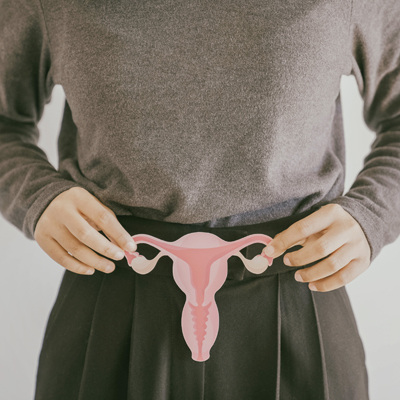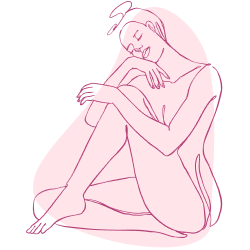Endometriosis
About endometriosis, its causes and treatment options
Endometriosis can cause various symptoms, including pelvic pain, painful periods, pain during sexual intercourse, infertility, fatigue, and digestive issues such as bloating, constipation, or diarrhea. The severity of symptoms can vary from person to person.
It’s essential for individuals experiencing symptoms of endometriosis to consult with a healthcare professional. They can provide an accurate diagnosis and recommend appropriate treatment options based on the individual’s specific situation.

What is endometriosis?
Endometriosis is the medical term for when endometrial cells — the cells that normally only line the uterus — grow in other parts of the body. The cells most often grow in the pelvis, but can appear elsewhere in the body.
Endometrial cells outside the uterus behave like those within the womb. That is, endometriosis tissue gets full every month and then bleeds at the time of menstruation. But this can eventually cause inflammation, scarring, and adhesions (organs that stick together in places).
Endometriosis:
- can be very painful
- gets worse over time
- is a long-lasting (chronic) condition
- can affect fertility
- can prevent women from participating fully in education, work or sporting activities.
More than 10% of women in Australia will develop endometriosis by age 40.


What are the symptoms of endometriosis?
- Abdominal or pelvic pain. This can happen before and during a period, during or after sex or when going to the toilet. You may even feel pain in your thigh or leg. The pain can prevent you joining regular activities like education, work or sport.
- Heavy periods or irregular bleeding. Bleeding for longer than normal or before a period is due can also signal endometriosis. Sometimes you may notice clots of blood.
- Bleeding from the bladder or bowel. Seek medical attention immediately if you notice blood in your stools or urine.
- Changes in urination or bowel movements. You may need to urinate more frequently or have constipation
- Bloating. This may or may not cause discomfort.
- Tiredness. You may notice this particularly around the time of your period
- Anxiety or depression related to the pain.
- Infertility . Endometriosis is often discovered as an underlying cause of infertility.
What causes endometriosis?
We don’t yet fully understand the causes of endometriosis. We do know of several situations where endometriosis tends to happen:
- With retrograde menstruation. Menstrual blood usually flows out of the body. With retrograde menstruation some blood, containing endometrial cells, travels along the fallopian tubes and into the pelvis. The leaked endometrial cells stick onto the surfaces around the pelvis organs and start growing.
- When normal pelvic tissue turns into endometriosis (metaplasia).
- When there is a family history of endometriosis. If you have a close relative with endometriosis, you are more likely to develop it as well.


What are the treatment options for endometriosis?
The treatment options for endometriosis depend on your symptoms and the severity of your endometriosis.
You could receive:
- Medicines for pain relief and/or hormonal therapies like the pill or an implant or IUD.
- Surgery to remove as much of the endometriosis as possible. A hysterectomy (removal of the womb) may be suggested in very severe cases.
- Physiotherapy for help with bladder and bowel concerns
- Psychological therapies to help manage chronic pain
About 1 in 3 women with endometriosis have trouble with fertility. Fertility treatments such as IVF often help.
What should I do if I think I have endometriosis?
If you think you have endometriosis, or if you are concerned about irregular patterns of bleeding and abdominal, Venus Women’s Clinics can help. We offer evidence-backed quality diagnosis and management of endometriosis and its symptoms. Put your health first with the caring and compassionate health professionals at Venus Women’s Clinics.

NOTE: While it is reviewed for clinical accuracy, the content on the Venus Women’s Clinic website does not replace professional advice. This information should not be used as an alternative to professional healthcare. If you have a particular medical problem, please consult a doctor or a specialist.

